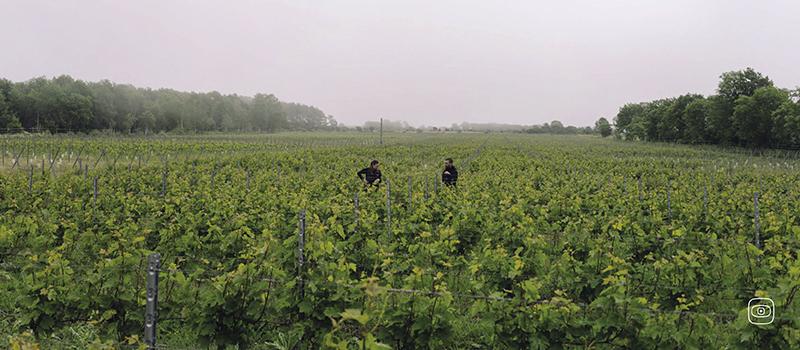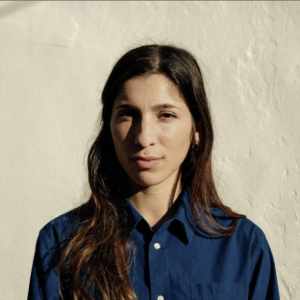The journalists visited vineyards, spoke with winemakers, and interviewed academic professionals. Among other experts, the team interviewed the interdisciplinary team of the French National Institute for Research on Agriculture, Food and Environment (INRAE), which has a research program on climate change and wine production.
Pau Coll and Soledad Dominguez covered Spain and France, and Cush Munger, accompanied by Polina Bachlakova and Berta Vicente Salas, investigated the cases of Denmark and Sweden.
The findings revealed that vineyards are grappling with the negative effects of climate change not only in Spain and France, but also in Denmark and Sweden. At the same time, their daily realities appeared dispersed. There are no standards for the the production process, varieties or wine quality of Scandinavian wine, making it a “wild west” of sorts where winemakers and oenologues can experiment however they want, which greatly contrasts with the long-standing and highly-regulated wine traditions in regions in France, Italy and Spain.
Overall, for the Scandinavian wine industry, climate change has been more of a psychological and emotional driver: wine entrepreneurs are skeptical about planting in Southern Europe and are comforted by the fact that temperatures in Denmark and Sweden will gradually become more and more favourable to grape cultivation. At the same time, it appears that the key factor that now allows wine production Sweden and Denmark, is not warmer temperatures but rather the use of hybridised “piwi” grapes developed in Germany.
In France, the investigation also revealed differences on the regional level. Despite the fact that Montpellier is an old region and has a very traditional culture of terroir and wine production, it turned out that the winegrowers use innovative approaches to produce new vines which would be adapted to climate change. For example, they employ techniques with the use of organic material in the soils and many vineyards have gone organic, for the soil better to retain moisture and minerals and thus better resist the high summer temperatures. At the same time, Bordeaux proved to be the most conservative, but its small vineyards there are also in favour of using new techniques.
In Catalonia, the journalists visited both large and artisanal wineries, as they deal with extreme weather phenomena in different ways, and discovered that large wineries have a greater margin for adaptation.
Winemakers everywhere need to work on preventing erosion, and retaining water and nutrients, which are crucial in the face of climate change. At the same time, as lighter wines with less alcohol content are becoming popular, it is no longer just about making the grapes ripe, but controlling the level of ripeness, especially in these excessive heat conditions.
**
All the locations the team travelled to:
- Gotland Island, Sweden
- Bjäre Peninsula, Sweden
- Zealand, Denmark
- Montpellier and Saint Emilion/Bordeaux, France
- Perpignan, France
- Catalonia, Spain
Photo by Berta Vicente Salas







